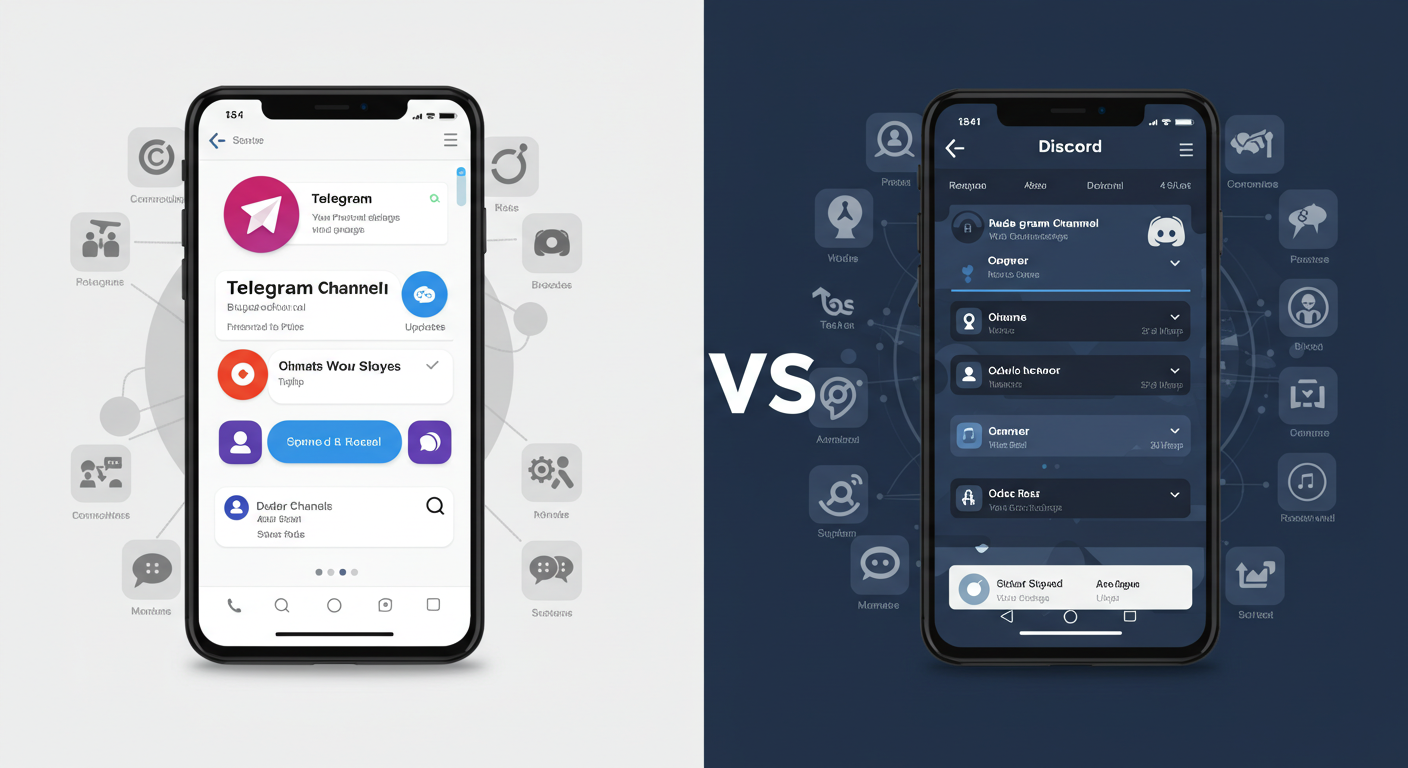Telegram or Discord: Which Platform Builds Better Communities?
Compare Telegram and Discord in 2025 for building and managing online communities. Discover their features, pros and cons, and find out which one fits your brand or business.

Introduction: Two Giants of Community in 2025
In 2025, online communities are the backbone of creator brands, startups, crypto projects, and digital courses. Two platforms dominate this space: Telegram and Discord.
But which one should you choose for your community?
Both have millions of users, powerful tools, and loyal fan bases—but they serve different purposes. This article compares Telegram vs Discord in 2025 to help you make the right choice based on your goals, audience, and content style.
1. Audience & Adoption
Telegram is massively popular in Europe, Asia, and the crypto/Web3 world. It’s widely used on mobile devices, and its strength lies in simplicity and speed.
Discord, on the other hand, has become the go-to platform for gaming communities, tech startups, DAOs, and online learning spaces—especially in the U.S. and Western countries.
Verdict:
-
Choose Telegram if your audience is global, mobile-first, or crypto-native.
-
Choose Discord for Gen Z, gamers, developers, and deeper engagement.
2. Onboarding and Accessibility
Telegram offers instant access to channels and groups—no sign-up hassle. Users can join via a link, no password or username needed.
Discord requires users to create accounts, verify emails, and often navigate multi-step onboarding.
Verdict:
Telegram wins for frictionless access. Discord is better for structured onboarding experiences.
3. Community Structure & Permissions
Telegram channels are linear—newest post on top. Admins can post, users can react (in groups), but threaded discussions are limited.
Discord offers layered community architecture:
-
Multiple text and voice channels
-
Roles, permissions, integrations
-
Voice chats, stages, bots, and forums
Verdict:
Discord gives you more control and structure, ideal for large-scale communities.
4. Content & Media Sharing
Telegram allows broadcast-style content with pinned posts, polls, files, and voice notes. Channels feel like news feeds or premium content hubs.
Discord is interactive, real-time, and content flows fast. Best for:
-
Live events
-
Announcements with discussion
-
Team collaboration or course communities
Verdict:
Use Telegram for broadcast & distribution. Use Discord for collaboration & dialogue.
5. Automation & Bots
Both platforms support bots, but Telegram’s bots are simpler to set up and perfect for:
-
Auto-posting
-
Paid channel access (e.g., InviteMember)
-
Feedback collection or forms
Discord bots are more powerful but complex, offering:
-
Gamification
-
Role-based access
-
Integrations with Webhooks and external APIs
Verdict:
Telegram wins for fast automation. Discord wins for advanced functionality.
6. Monetization & Business Use
Telegram supports paid access, affiliate promotions, and seamless content monetization through bots or external tools.
Discord requires third-party integrations for monetization (e.g., Ko-fi, Patreon, Stripe bots), but enables role-based premium communities.
Verdict:
Telegram is simpler for solopreneurs. Discord works better for structured paid memberships.
Conclusion: Which Platform Is Right for You?
There’s no one-size-fits-all answer.
-
Choose Telegram if you want:
✅ Simplicity
✅ Global reach
✅ Mobile-first growth
✅ Broadcast power -
Choose Discord if you need:
✅ Community hierarchy
✅ Voice/video chat
✅ In-depth engagement
✅ Complex roles and bots
In many cases, the best strategy might be: Use both.
Telegram for lead generation and content drops, Discord for community discussion and retention.